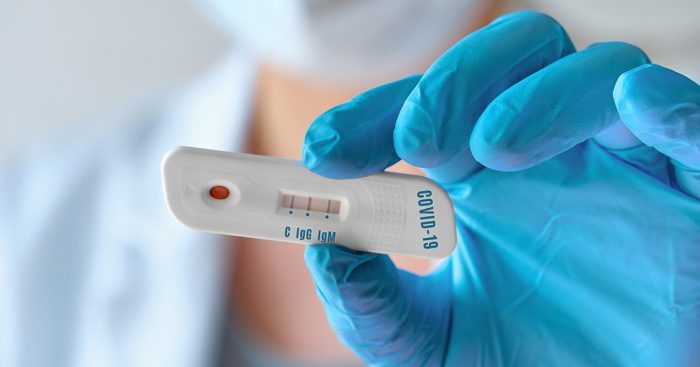
Source: COVID-19 Immunity Task Force
The Government of Canada is investing $1.9 million through Canada’s COVID-19 Immunity Task Force (CITF) to fund a Canadian Partnership for Tomorrow’s Health (CanPath) study looking at COVID-19 seroprevalence across Canada, with a particular focus on certain populations that are at higher risk of infection.
CanPath is a national population health research platform that follows the health of 330,000 Canadians (or 1% of the population). This pan-Canadian study will test 20,000 participants for antibodies to SARS-CoV-2, an indication of past infection with the novel coronavirus. The study will focus on adults ages 30 and older who may have been exposed to SARS-CoV-2 in populations that are traditionally not included in studies or have among the highest risk of exposure to COVID-19. This will include residents of long-term care homes and people living in under-served urban and rural communities with higher numbers of COVID-19 cases.
“CanPath’s large number of participants, pan-Canadian reach, and population coverage enable us to detect differences in exposure and immunity among Canadians. We can capture how age, sex, socio-demographic factors, geography, genetics and health history impact varying immune responses to COVID-19 in Canada,” says Dr. Philip Awadalla, National Scientific Director of CanPath. “With data captured by the CanPath COVID-19 survey we rapidly implemented earlier this year, we are able to identify participants who may have been exposed as well as infected. We can also identify how pre-existing conditions, captured through health information routinely collected over the past decade, impact COVID-19 disease severity.”
“As the largest population health study platform in Canada, CanPath can help the COVID-19 Immunity Task Force shed more light on the unequal distribution of COVID-19 across the country,” says Dr. Tim Evans, Executive Director of the CITF. “Together with in-depth immuno-genomic analyses undertaken on a subset of study participants thanks to a previously funded study, we expect the findings to fuel better tailored and more effective interventions to protect vulnerable communities.”
“CanPath has contributed data and developed partnerships with numerous researchers and organizations across Canada for over a decade,” adds Dr. John McLaughlin, Executive Director of CanPath. “These partnerships enable our provincial and regional teams to work with communities that are at greatest risk. CanPath will work in support of Indigenous leaders and scholars to study the seroprevalence of COVID-19 antibodies among Indigenous communities. We are honoured to be selected to support the national COVID-19 control efforts by being able to rapidly provide actionable insights to federal and provincial decision-makers.”
“Protecting the health of all Canadians, including those who are at higher risk of infection because of their social or economic situation, is a top priority in our ongoing management of COVID-19 in Canada,” says Dr. Theresa Tam, Chief Public Health Officer of Canada. “This study will improve our understanding of the spread of COVID-19 among populations at higher risk of infection and will allow us to plan and target our public health approaches more effectively.”
This COVID-19 serology study builds upon a previous investment of $2.6 million awarded to CanPath by the Canadian Institutes of Health Research and the CITF. The funding of the SUPPORT-Canada initiative was to conduct COVID-19 surveys on the full CanPath cohort as well as immuno-genomic analyses on a subset of 4,000 participants. This new serological study will be implemented in collaboration with CanPath’s regional cohorts: the BC Generations Project, Alberta’s Tomorrow Project, the Manitoba Tomorrow Project, Ontario Health Study, CARTaGENE (Quebec) and the Atlantic Partnership for Tomorrow’s Health.

October 28 2020
